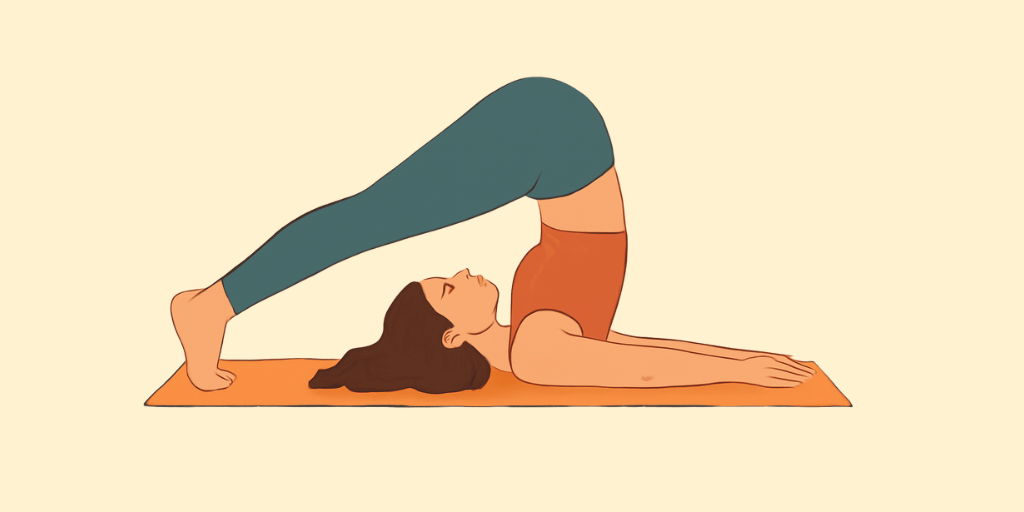Sanskrit Name: हलकासन
English Name: Plow Pose
Description:
Halasana, commonly known as Plow Pose, offers a profound and calming stretch for the entire body. It effectively engages the back, shoulders, and legs, promoting enhanced flexibility and relaxation. Envision it as a method to de-stress, alleviate tension, and expand your body—similar to a reset for your muscles. The term “Hala” refers to a plow (the agricultural tool), while “Asana” signifies pose or posture, making Halasana translate directly to Plow Pose. This pose is rooted in traditional Hatha Yoga. Much like a plow that prepares the soil, Halasana is believed to aid in “plowing” or stretching the body, particularly opening the back and shoulders. Picture Halasana as a comprehensive stretch that helps to “remove” the tightness and stress accumulated throughout your day, serving as a gentle refresh for your back and shoulders, facilitating deeper breathing.
Benefits:
- Improved Flexibility: Halasana stretches the spine, shoulders, and hamstrings, enhancing overall flexibility.
- Stress Relief: The pose calms the mind and reduces stress and anxiety by promoting relaxation.
- Digestive Health: It stimulates the abdominal organs, aiding digestion and relieving constipation.
- Thyroid Function: Halasana can help improve the function of the thyroid gland, which regulates metabolism.
- Circulation: The inversion increases blood flow to the brain, enhancing circulation and oxygen supply.
- Strengthening Core Muscles: The pose engages the core, helping to strengthen abdominal muscles.
- Relief from Fatigue: Halasana can alleviate fatigue and rejuvenate the body by reversing the effects of gravity.
Medical Conditions(Relief):
Halasana, or the Plow Pose, can be beneficial for various medical conditions. It aids in alleviating stress and anxiety by promoting relaxation. This asana can enhance digestion and relieve constipation, as it stimulates the abdominal organs. Additionally, it may help in reducing symptoms of insomnia by calming the nervous system. Those with back pain might also find relief, as it stretches and strengthens the spine. However, individuals with neck issues or certain medical conditions should consult a healthcare professional before practicing this pose.
Medical Conditions(Avoid):
- Neck Injuries: Individuals with neck injuries may exacerbate their condition due to the weight and pressure placed on the neck during Halasana.
- Spinal Disorders: Those with spinal issues, such as herniated discs or severe back pain, should avoid this pose as it can strain the spine.
- Glaucoma: Halasana increases intraocular pressure, which can be harmful to individuals with glaucoma.
- Pregnancy: Pregnant individuals should avoid this pose due to the pressure on the abdomen and potential strain on the back.
- High Blood Pressure: This pose can elevate blood pressure, making it unsuitable for those with hypertension.
- Carpal Tunnel Syndrome: Those suffering from this condition may find the wrist position uncomfortable and potentially harmful.
- Recent Surgery: Anyone who has undergone recent abdominal or neck surgery should refrain from practicing Halasana to prevent complications.

